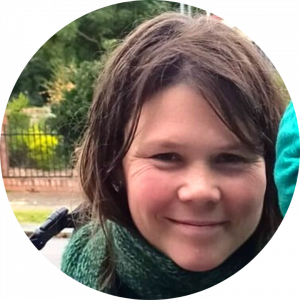Speaker

“A Portrait of the Anthropologist as a Young White Woman: Reading Tensions in Fieldnotes”
– DAY 2 –
Kathryn Ticehurst, University of Sydney
Abstract:
The production of anthropological knowledge is imbricated in colonisation, both epistemologically and practically. These tensions run through the interactions that comprise anthropological fieldwork, and can be examined through the fieldnotes that record these encounters.
Using a specific case study, I describe some of the ways in which fieldnotes can be used as sources to examine the context in which fieldwork occurs, and the ways in which people who encounter anthropologists observe, analyse and draw attention to the power structures and colonial histories they are part of. Taking inspiration from this observation of anthropologists, recorded in various ways in the fieldnotes themselves, I explore how a biographical approach can turn the focus back onto the anthropologist: onto the ways in which they construct themselves as expert, and the ways in which they are part of local, colonial intimacies and relations structured by race, class and gender.
I look at a specific case study: the young white woman Marie Reay, who set out to conduct anthropological fieldwork in south-eastern Australia between 1944 and 1948, seeking out Aboriginal people living in country towns across Yorta Yorta, Wiradjuri, Yuwalaraay, Wailwan, Wongaibon, Gamilaraay, Barkindji, Bardaji, Murrawari, Ngemba and Nyirrpa country. Reay travelled across these lands as the Second World War was ending, but a much older war was still going on. Wartime economic changes brought up tensions rooted in colonial conflict, about racial segregation, wage inequalities and land. Reay was situated within these conflicts by her status as a white woman, and by her structural links with the Aborigines Welfare Board of New South Wales, which held extraordinary powers over the lives of Aboriginal people living in the state, including the legal power to forcibly relocate people to Board-run institutions, and to remove children from their families. Reay’s work was supervised by the anthropologist A. P. Elkin, who was also the Vice-President of the Board, and Reay herself intermittently worked for the Board, and sent reports of her observations and comments on Aboriginal people to the Board through Elkin. Her first field trip was to Cootamundra Girls Home, an institution where girls removed from their families were “trained” before being sent into involuntary, and often unpaid, domestic service. Reay’s later fieldwork took her to other state-run institutions, as well as to settlements and camps where people lived with the threat of forced relocation or the removal of their children, and where many people had already experienced such interventions.
A biographical approach to Reay’s fieldwork recognises the potential of fieldnotes to document the interactions and tensions between people which were shaped by these broader histories, and to situate the production of anthropological work within its social and historical context.
Bio
Kathryn Ticehurst has recently completed a PhD in history, examining the fieldwork of three white women anthropologists visiting Aboriginal communities in the south-east of Australia in the mid-twentieth century. She is interested in colonial histories of science, and the social context of the production of knowledge.
(Photo: private)
